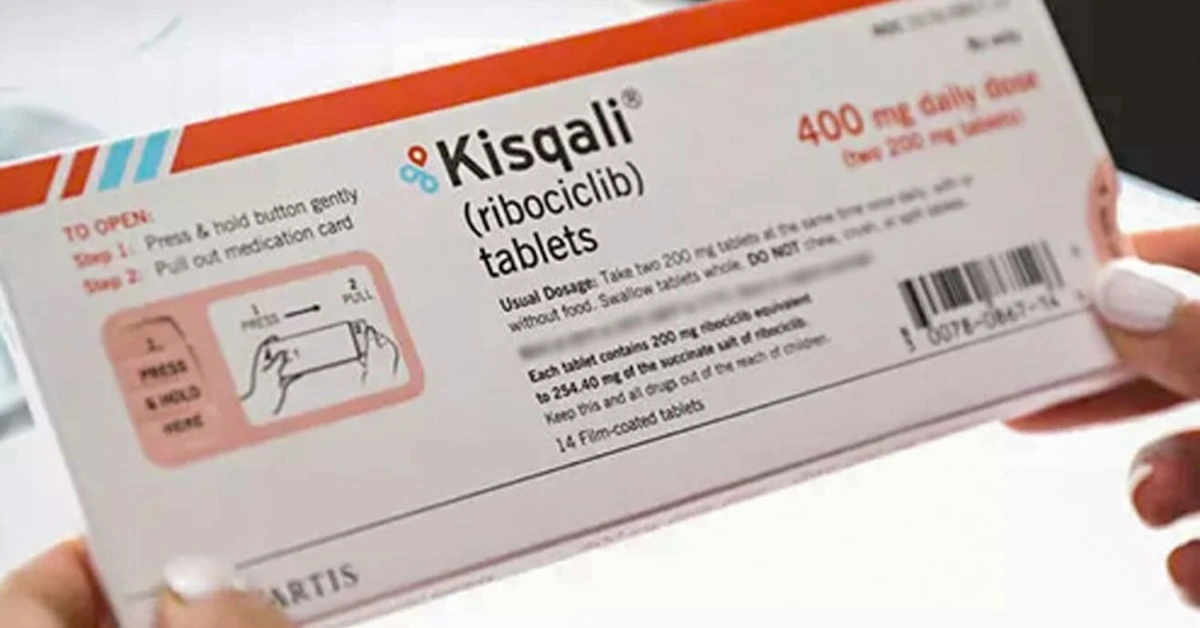
BELGIUM – Novartis’ Kisqali (ribociclib), in combination with an aromatase inhibitor, has received approval from the European Commission (EC) for use in high-risk early breast cancer.
The approval specifically targets hormone receptor-positive, human epidermal growth factor receptor 2-negative (HR+/HER2-) patients in the adjuvant treatment setting.
This decision follows the recent U.S. Food and Drug Administration (FDA) approval for the same indication, solidifying Kisqali’s position as a leading treatment in this space.
The approval is based on results from the global Phase III NATALEE trial, which involved 5,101 patients across 20 countries.
The study demonstrated a 25.1% reduction in the risk of disease recurrence with Kisqali plus endocrine therapy compared to endocrine therapy alone.
This benefit was consistent across all patient subgroups. The primary endpoint was invasive disease-free survival (iDFS), measured according to the Standardized Definitions for Efficacy End Points (STEEP) criteria.
Kisqali’s addition to the treatment landscape addresses a significant unmet need for patients with early-stage HR+/HER2- breast cancer, a population at high risk of recurrence.
The National Comprehensive Cancer Network (NCCN) Clinical Practice Guidelines in Oncology have also recognized Kisqali as a preferred Category 1 adjuvant treatment for breast cancer.
“Breast cancer recurrence can be a lifelong concern for those living with the disease. Patients deserve access to treatment options that help minimize the risk of their cancer coming back and put their minds at ease,” said Iris Zemzoum, President of Novartis Europe.
“We are proud of this approval, which will help address a key unmet need and improve health outcomes for a broader population of patients in Europe.”
This approval places Kisqali in direct competition with Eli Lilly’s Verzenio (abemaciclib), which gained a similar adjuvant indication last year.
Both drugs are significant players in the CDK4/6 inhibitor market. In Q3 2024, Kisqali generated US $787 million in revenue, growing 43%, while Verzenio recorded US $1.36 billion in sales, reflecting a 32% increase.
Kisqali distinguishes itself with its NCCN Category 1 recommendation as a first-line therapy in combination with an aromatase inhibitor for advanced HR+/HER2- breast cancer.
It remains the only drug in its class with this level of endorsement and was recently added to the NCCN guidelines for adjuvant use, further boosting its adoption.
According to Novartis CEO Vas Narasimhan, the early breast cancer indication could potentially double the eligible patient population for Kisqali compared to its current use in metastatic disease.
He also noted that this expansion represents “a three times larger population than is currently labelled for the competitor product in early breast cancer.”
This regulatory milestone comes as Novartis strengthens its oncology pipeline through strategic partnerships and acquisitions.
Recently, the company entered a US $745 million agreement with Ratio Therapeutics to advance radiotherapeutic candidates and a US $2.4 billion collaboration with Schrödinger to develop multiple drug candidates.
Additionally, Novartis acquired Kate Therapeutics for US $1.1 billion to bolster its capabilities in gene therapy for rare diseases.
XRP HEALTHCARE L.L.C | License Number: 2312867.01 | Dubai | © Copyright 2025 | All Rights Reserved